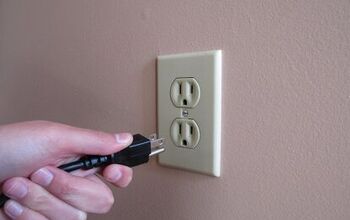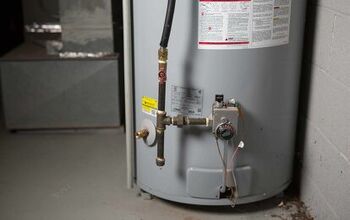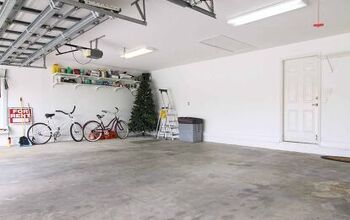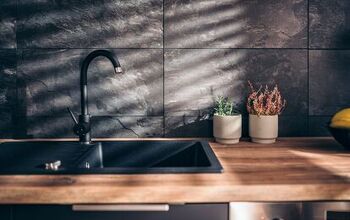Want A Bigger Home? First, Look At The Benefits Of Less Square Footage

It’s easy to get trapped in the comparison game these days, mostly thanks to social media. You see pictures on Instagram of your friend’s new pool, or you let some random TikTok influencer take you on a tour of their mansion. Suddenly, your home, which was perfectly fine a few minutes ago, seems too small, too boring, and too outdated.
Before you buy a larger house, consider the benefits of living in a smaller space. You spend less time cleaning, have more flexibility with lifestyle changes, and are more intentional with belongings. Smaller homes typically cost less overall and encourage household members to spend more time together. The smaller size also has less impact on the environment.
There’s no denying that there’s a whole mantra out there that “bigger is better.” But when you stop to think about what you get with a bigger home, you might be surprised to discover that bigger isn’t always best.
The Big Benefits Of Less Square Footage
Pretend for a moment that you have no idea what anybody else’s house looks like. You know that your home provides you with adequate shelter, space, security, and comfort. You love your house, you feel at peace when you walk through the door, and there’s no reason to move.
Now, with those same thoughts in mind, you turn on your phone and start scrolling. Pictures of megamansions, home theatres, elaborate backyard oases, and gourmet kitchens bombard you at every turn.
What’s that? The random mom from the carpool line just remodeled her bathroom? No fair! Your sister-in-law just added a walk-in closet? How dare she! You look around and decide it’s time to move.
Your home isn’t cutting it anymore, and you need a bigger house, a better house. More square footage will somehow make everything in your life right. Um, no.
Of course, sometimes there are legitimate reasons to move to a bigger house, like having triplets. However, if you’re only thinking about buying a larger house for the sake of getting something bigger or keeping up with the Joneses, press pause.
Before upsizing, think about all the advantages that come with less square footage. Your smaller home might be just right, and dare we say — perfect, for your current lifestyle.
1. You’ll Have Less Burden On Your Budget
Comparatively, living in a smaller home typically costs less than staying in a larger one. Assuming things like location and condition are similar, your rent or mortgage is lower. Plus, monthly payments are lower thanks to paying less for taxes and insurance, which are usually based on square footage.
It also costs less to heat and cool a smaller house, and electricity bills are lower. And since there’s less home to take care of, you'll spend less on maintenance and repairs. It also becomes more manageable to make changes or renovate when you’re working with a smaller footprint.
2. A Smaller House Encourages You To Be More Intentional With Possessions
Unless you want to live in constant clutter, a small home makes you think twice about what you bring into it. Having less square footage encourages you to be more intentional with the things you decide to get and keep. It also pushes you to stay more organized and have a place for everything.
Instead of surrounding yourself with a bunch of stuff, you keep only those things that are most precious. Since smaller spaces promote a less-is-more mentality, you’ll enjoy the benefits of less clutter.
You’ll feel less stressed and calmer when you’re in your home. Also, being more organized helps boost your productivity and efficiency. Furthermore, being more intentional with possessions makes you more appreciative of what you have.
3. Less Space Brings People Together
In a big house, it’s easy to hide away in a room somewhere and get lost in your own world. You can go a whole day without crossing paths with anyone else in the home. Although this is great for privacy, it can lead to strained relationships and feelings of detachment and isolation.
A smaller space makes it easier for family members to check in with each other and stay abreast of what’s happening in each other’s lives. It also promotes better communication and cooperation, since household members might need to discuss times for TV use, etc.
And it’s not like you can never have privacy in a smaller home, it’s just that you need to be more purposeful. For example, household members need to set a schedule that gives everyone the time and space they need for certain activities, which in turn, helps everyone communicate and interact more.
4. You Have More Time And Flexibility
One of the best parts about living in a smaller home is that you can clean it in much less time. Who wants to waste a whole day scrubbing, rinsing, dusting, and mopping? It’s also easier to keep a smaller home tidy, since you can do a quick refresh and surface declutter in about 30 minutes.
If you want to make any changes, like refreshing paint, these types of projects also take less time. Now you get more time to do the things you want to do, make memories, and share experiences.
A smaller space also makes it less daunting to make a big life change. For example, imagine you get a promotion that requires you to move across the country. You have two months to pack up your 1,200-square-foot home and everything in it. This scenario is much less overwhelming than trying to do the same with 3,500 square feet, complete with bursting closets and copious amounts of clutter.
5. A Small House Leaves A Smaller Footprint
If you’re the environmentally-conscious type, then a small home helps you leave a smaller carbon footprint. You use fewer resources to heat, cool, and light your home — even building it takes fewer materials.
Indirectly, the encouragement to reduce clutter and live with less also benefits the environment. When you commit to not having a bunch of material items filling your home, you also don’t overbuy.
When people start to purchase less, it leads to companies manufacturing less, which decreases emissions. Instead, you’re more likely to use what you have and find items that serve multiple purposes, which helps with sustainable living.
Your Home Doesn’t Have To Be Big To Be Beautiful
A house doesn’t need to be extravagant or huge to be beautiful. Don’t obsess over the glittering homes you see plastered all over social media. Focus on what you have, be honest about what you truly need, and reframe your mindset. Think of how your home allows you to live better, not bigger.
If you’re still itching to upsize, list the reasons you want to do so. Think about the pros and cons of buying a larger house (not to mention the costs associated with moving). Do you need more space, or would you be content with a few tweaks to make your current home feel bigger?
Before you jump to extremes, one way or the other, do your research. Look at cost breakdowns, tour large homes and tiny homes, and try a decluttering challenge. Try to picture what life would be like if you lived larger or tinier.
What vision brings you the most peace, deep down in your soul? Be honest with yourself and quiet the noise from outside influences. Resist trying to keep up with the Joneses, who could very well be regretting their recent mega-mansion purchase.
You just never really know someone else’s whale story, which is why you need to focus on you. Then, you can come to a decision that fits your lifestyle and is the best choice for you and yours.
Related Guides:
- Transitioning Your Home Decor: When To Decorate For Each Season
- How To Choose The Perfect Colors For Your Home

Stacy Randall is a wife, mother, and freelance writer from NOLA that has always had a love for DIY projects, home organization, and making spaces beautiful. Together with her husband, she has been spending the last several years lovingly renovating her grandparent's former home, making it their own and learning a lot about life along the way.
More by Stacy Randall











![Finishing Basement Without Permit [Is It Really Illegal?]](https://cdn-fastly.upgradedhome.com/media/2023/07/31/9070078/finishing-basement-without-permit-is-it-really-illegal.jpg?size=350x220)
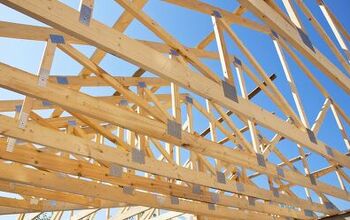
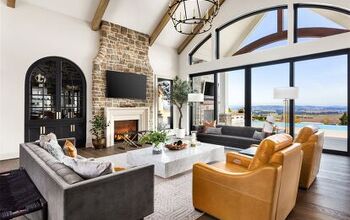
![How Much Weight Can a 4×4 Support Horizontally? [It Depends!]](https://cdn-fastly.upgradedhome.com/media/2023/07/31/9070333/how-much-weight-can-a-44-support-horizontally-it-depends.jpg?size=350x220)
